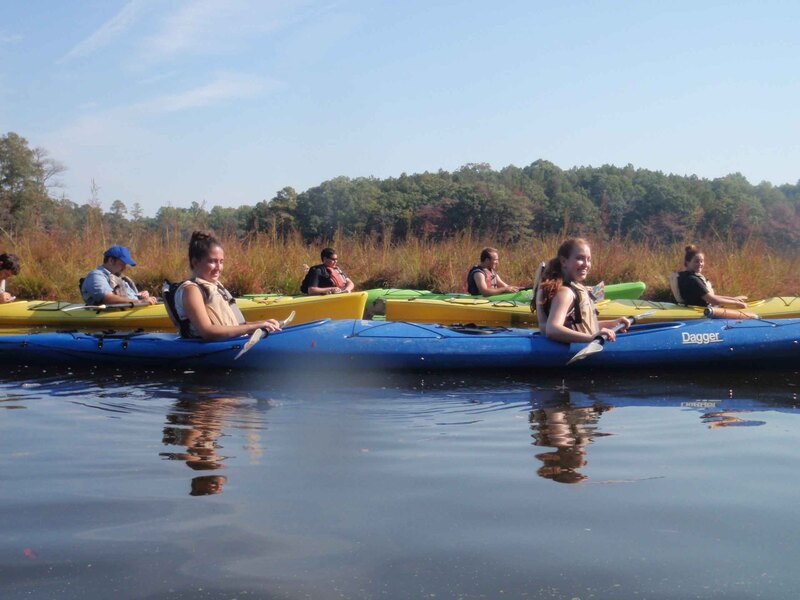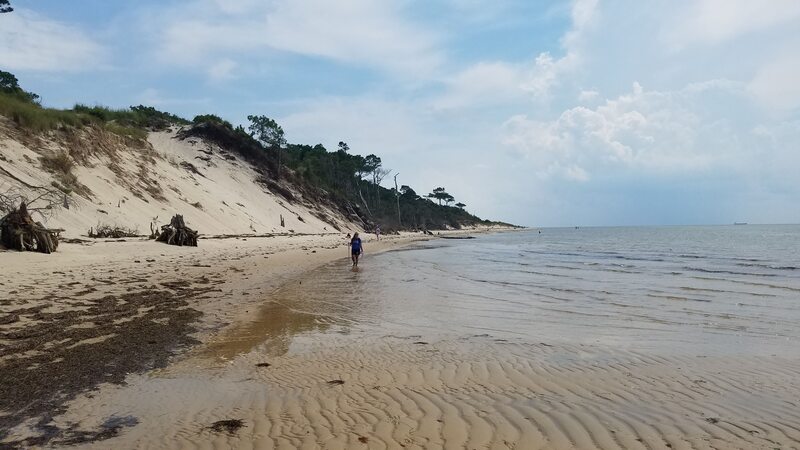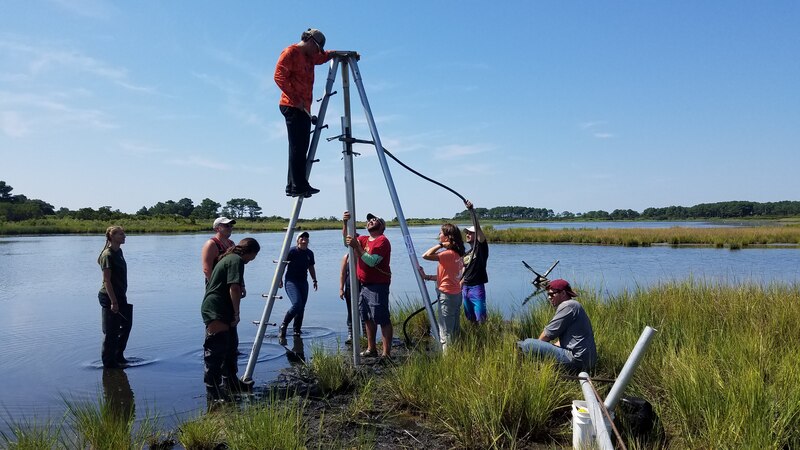INTRODUCTION TO OCEANOGRAPHY - MAR/GEL 110
DR. ADRIENNE OAKLEY - KUTZTOWN UNIVERSITY
Course Description:
Why should we care about the oceans? What is oceanography and how is it studied? These are questions you will be able to answer at the end of this course. My goal is to increase your awareness of the oceans and their importance to you as an individual.
This is an introductory course designed to introduce students from diverse backgrounds to the physical, chemical, biological, and geological aspects of the oceans and to the methods and techniques used in the field of oceanography. You will develop an understanding of how you are connected to the oceans. Oceanography is an interdisciplinary science to which you can apply your talents, regardless of your academic background. In this course, you will learn that the ocean is a critical component of an integrated system and see how it affects global climate and local weather. In lecture you will be introduced to the methods and tools that oceanographers use to explore the oceans. You will then gain hands-on experience with oceanographic instrumentation while in the field collecting data and samples. We will be on boats, at the beach, and in the salt marsh. In lab you will analyze the data you collected. Your data and observations will contribute to ongoing research projects studying the effects of sea level rise and environmental change on the Delmarva Peninsula.
Marketable Skills Gained from this Course:
General Description of Field Activities:
A significant amount of class time will be spent on the barrier islands of Wallops and Assateague, on the beach, sand dunes, and maritime forest of Savage Neck, in the salt marshes of Greenbackville, and on boats and kayaks in Chincoteague and Chesapeake Bays.
Field Activities will include trips to the following environments:
Approximate Amount of Course Time in the Field:
50%-60%
Prerequisites:
None. This course is appropriate for rising seniors in high school, incoming college freshman, and college students of all levels and backgrounds.
Required Textbooks or Supplies:
Number of Students in Course:
8-14
2024 Chincoteague Bay Field Station Fee:
3 week course; housing and meals included
Salicornia; $1,794
Traditional; $1,644
Fees are subject to change at the discretion of the board of directors
* Does not include university tuition or fees. For specific policy on CBFS fees, click HERE.
Why should we care about the oceans? What is oceanography and how is it studied? These are questions you will be able to answer at the end of this course. My goal is to increase your awareness of the oceans and their importance to you as an individual.
This is an introductory course designed to introduce students from diverse backgrounds to the physical, chemical, biological, and geological aspects of the oceans and to the methods and techniques used in the field of oceanography. You will develop an understanding of how you are connected to the oceans. Oceanography is an interdisciplinary science to which you can apply your talents, regardless of your academic background. In this course, you will learn that the ocean is a critical component of an integrated system and see how it affects global climate and local weather. In lecture you will be introduced to the methods and tools that oceanographers use to explore the oceans. You will then gain hands-on experience with oceanographic instrumentation while in the field collecting data and samples. We will be on boats, at the beach, and in the salt marsh. In lab you will analyze the data you collected. Your data and observations will contribute to ongoing research projects studying the effects of sea level rise and environmental change on the Delmarva Peninsula.
Marketable Skills Gained from this Course:
- Hands-on experience with instruments and techniques used in oceanography (examples: GPS, YSI water quality meter, refractometer, CTD, Total Station, vibracore, benthic grab, Otter Trawl, seine net, sediment grain size analysis, biotic surveys)
- Field note-taking skills
- Computer skills in Excel, Google Earth, GeoMapApp, scientific search engines and databases
- Data collection and analysis
- Research experience
General Description of Field Activities:
A significant amount of class time will be spent on the barrier islands of Wallops and Assateague, on the beach, sand dunes, and maritime forest of Savage Neck, in the salt marshes of Greenbackville, and on boats and kayaks in Chincoteague and Chesapeake Bays.
Field Activities will include trips to the following environments:
- Barrier Islands: sand sampling, beach morphology and stratigraphy, shoreline mapping, prey base and shell bed surveys, seining
- Boat trips: benthic grab sampling, water quality, Otter trawling, CTD measurements
- Salt Marsh: water and soil sampling, invasive species removal, oyster castle maintenance
- Plankton tows
- Kayaking
- Vibracoring (sediment sampling)
- Hiking (maritime forests and paleodunes)
Approximate Amount of Course Time in the Field:
50%-60%
Prerequisites:
None. This course is appropriate for rising seniors in high school, incoming college freshman, and college students of all levels and backgrounds.
Required Textbooks or Supplies:
- Trujillo and Thruman-Essentials of Oceanography 11th 12th or 13th Edition
- Rite-in-the-Rain field notebook
- Calculator
- Laptop
Number of Students in Course:
8-14
2024 Chincoteague Bay Field Station Fee:
3 week course; housing and meals included
Salicornia; $1,794
Traditional; $1,644
Fees are subject to change at the discretion of the board of directors
* Does not include university tuition or fees. For specific policy on CBFS fees, click HERE.




